For gamers 2006 was all about the introduction of Sony’s PlayStation 3 and Nintendo’s Wii systems; there weren’t many great games released.
This year, by contrast, has delivered one fabulous interactive entertainment experience after another. Even without Grand Theft Auto IV, which was delayed until next year, this year has witnessed the strongest lineup of new games since the fall of 2004, when Halo 2, Grand Theft Auto: San Andreas, and World of Warcraft were introduced.
Even with heavy hitters like Spore, GTA IV and Super Smash Bros. on the horizon for 2008, it will be tough for next year to top the crop of 2007. Here are some of this year’s most important, intriguing and just plain amusing games and developments.
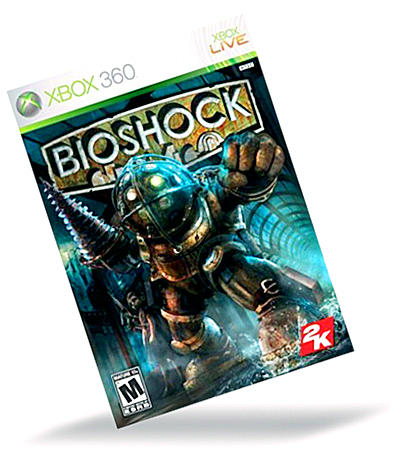
BEST NEWCOMER: BioShock
It is rare for a new game to burst onto the market with little publicity and become an instant sensation. When that does happen, it is usually with a game with a unique play style, like Katamari Damacy in 2004 and the first Guitar Hero in 2005. Otherwise players and the press usually see the best games coming from far away. Not with BioShock. Take-Two, its publisher, delivered a game in perhaps the most competitive genre of all, the first-person shooter, that was so intelligently designed that it immediately sailed into the ranks of the best shooters of all time. BioShock is propelled by its lush evocation of an undersea dystopia and a story line capped by a piquant twist at the end.
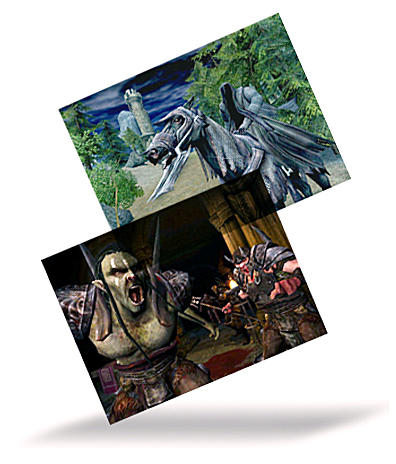
BEST ADAPTATION OF AN ADORED
INTELLECTUAL PROPERTY:
The Lord of the Rings Online
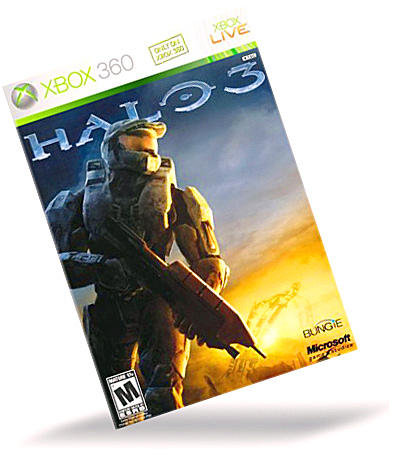
The dramatic and narrative butchery that could have ensued when Turbine set out to make an online role-playing game based on the Lord of the Rings books had Tolkien fans stockpiling torches. Not to worry. This game allows players to make their own stories in Middle-earth without trampling on the canonic tale of the One Ring.
MOST DIFFICULT DELIVERY:
The New E3
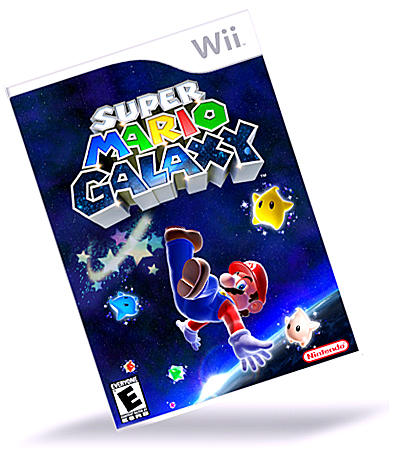
The game business may be one of the few in which everyday consumers actually care about the industry’s trade shows. That is because the annual Electronic Entertainment Expo has long been a showcase for the best games coming each holiday season. This year the industry radically downsized the event, known as E3, moving it from the cavernous Los Angeles Convention Center to a constellation of ritzy beach-side hotels. It was a great idea but a logistical nightmare because the demonstrations were spread out among at least a dozen hotels, bars, restaurants and even an airplane hangar. The solution for next year can be summed up in one word (or is that two?): Las Vegas.
BEST UNAMBITIOUS REPRESENTATIONS OF THE STATE OF THE ART:
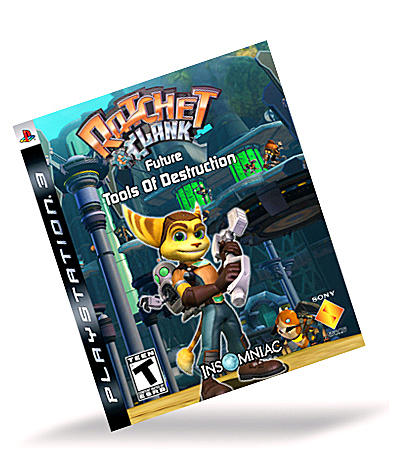
Halo 3 and Super Mario Galaxy
Halo 3 is a polished gem of a science-fiction shooter. But that is all it is. It has suitably spruced-up graphics, and some of its new online features are welcome additions. But it is a refinement of the time-tested Halo formula rather than a daring attempt to provide a new sort of experience. That’s enough to generate hundreds of millions of dollars, but it is not enough to inspire.
Super Mario Galaxy presents similar questions. Galaxy is finely tuned and a worthy member of the Mario pantheon. Almost anyone can have fun playing it. But as with Halo, Galaxy is at some level mostly a re-invention of classic play modes. In Halo that means battling killer aliens. In Mario that means jumping and dodging and collecting stars to free the princess who, as she has been for more than 20 years, is locked away in a cartoon-style castle. That’s fun as far as it goes. But now that the Nintendo developer Shigeru Miyamoto has gotten the Wii incarnations of his Mario and Zelda series out of the way, perhaps he will turn to creating something genuinely new.
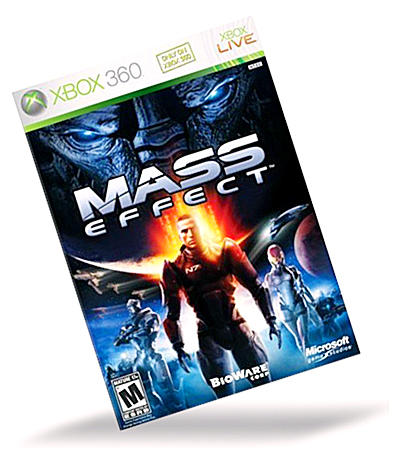
BEST SINGLE-HANDED RESCUE OF
A MAJOR GAME SYSTEM:
Ratchet & Clank: Tools of Destruction
Sad to say, many of this year’s big- budget, exclusive games for Sony’s PlayStation 3, including Heavenly Sword and Lair, were mediocre at best. The action-adventure game Uncharted: Drake’s Fortune seems strong, but the shining star for the PS3 this year was the new Ratchet & Clank, made by Insomniac Games. Analogies can be overworn, but playing Ratchet is actually like playing an animated film, and that’s a rare thing.
GAME OF THE YEAR:
Mass Effect
Story and characters aren’t everything, but these components of narrative have always been the weakest part of video games. For decades games have made up in frenetic action what they have lacked in dramatic depth. And that is a big reason why games have traditionally appealed most strongly to the demographic group that most enjoys frenetic action: young men.
In its choice of milieu — science fiction — Mass Effect is not ambitious at all. But with its focus on character development, personal growth and moral tension, all fueled by a graphics system created to evoke emotional empathy, Mass Effect points the way forward. It may be a harbinger of a time when story and character are as important to video games as explosions.

The canonical shot of an East Asian city is a night skyline studded with towering apartment and office buildings, bright with neon and plastic signage, a landscape of energy and modernity. Another classic image is the same city seen from above, in which identical apartment towers march across the city, spilling out over nearby geography, like stylized soldiers colonizing new territory in a board game. Densely populated dynamic conurbations of money, technological innovation and convenience, it is hard to see the cities of East Asia as what they truly are: necropolises. Why is this? The East Asian development model, with

June 16 to June 22 The following flyer appeared on the streets of Hsinchu on June 12, 1895: “Taipei has already fallen to the Japanese barbarians, who have brought great misery to our land and people. We heard that the Japanese occupiers will tax our gardens, our houses, our bodies, and even our chickens, dogs, cows and pigs. They wear their hair wild, carve their teeth, tattoo their foreheads, wear strange clothes and speak a strange language. How can we be ruled by such people?” Posted by civilian militia leader Wu Tang-hsing (吳湯興), it was a call to arms to retake

Desperate dads meet in car parks to exchange packets; exhausted parents slip it into their kids’ drinks; families wait months for prescriptions buy it “off label.” But is it worth the risk? “The first time I gave him a gummy, I thought, ‘Oh my God, have I killed him?’ He just passed out in front of the TV. That never happens.” Jen remembers giving her son, David, six, melatonin to help him sleep. She got them from a friend, a pediatrician who gave them to her own child. “It was sort of hilarious. She had half a tub of gummies,

The wide-screen spectacle of Formula One gets a gleaming, rip-roaring workout in Joseph Kosinski’s F1, a fine-tuned machine of a movie that, in its most riveting racing scenes, approaches a kind of high-speed splendor. Kosinski, who last endeavored to put moviegoers in the seat of a fighter jet in Top Gun: Maverick, has moved to the open cockpits of Formula One with much the same affection, if not outright need, for speed. A lot of the same team is back. Jerry Bruckheimer produces. Ehren Kruger, a co-writer on Maverick, takes sole credit here. Hans Zimmer, a co-composer previously, supplies the thumping